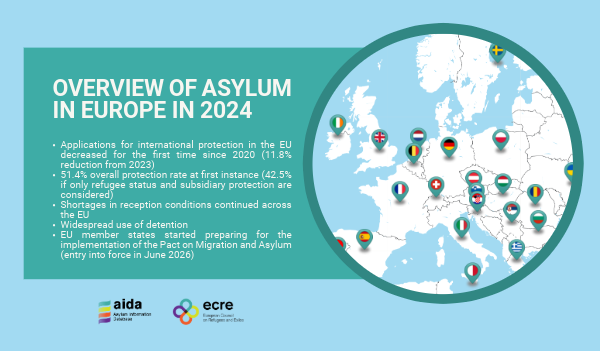The Asylum Information Database (AIDA) is managed by ECRE and contains detailed information on asylum procedures, reception conditions, the detention of asylum applicants and the content of international protection in 25 countries. It is relied upon by a wide range of actors, including both European and national policy-makers, legal practitioners and courts.
AIDA country reports are written by national experts in co-operation with a variety of stakeholders, including civil society organisations, lawyers and national authorities, and they are edited and verified by ECRE.
The 2025 briefing paper provides key examples of the general trends that could be observed across asylum systems in Europe in 2024:
- Although asylum systems remained in place and functioning across Europe, the rights of people in need of international protection were still being regularly violated and significant gaps in national asylum systems remained.
- Access to asylum and both the quality and length of asylum procedures have continued to be particularly concerning.
- Reception systems continued to face significant pressure in a number of European countries, despite the (often) sanctioned use of emergency accommodation.
- The widespread detention of asylum applicants (including unaccompanied children) continued to be a major concern across Europe.
- Most EU member states are preparing for the implementation of the EU Pact on Migration and Asylum which will come into effect in June 2026.
The 2025 briefing paper is available here and previous briefing papers can be found on the AIDA website.

